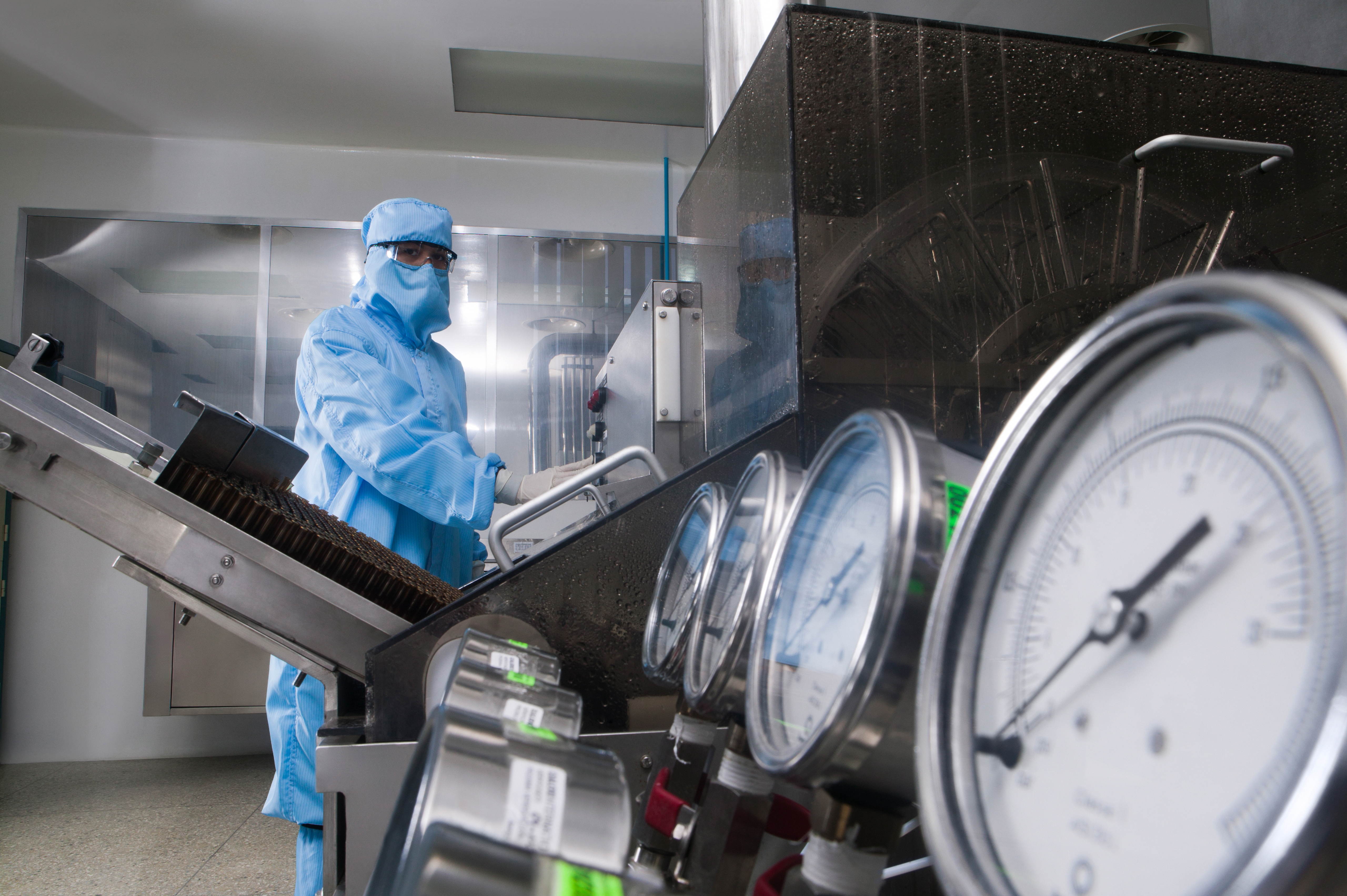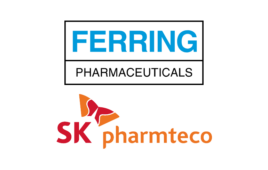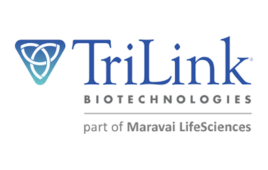
Andrea Wagner is walking through the back of the cavernous Berkshire Corporate Center on Pleasant Street.
She points out various laboratory facilities that her company, Berkshire Sterile Manufacturing, has built in the former warehouse, which was originally used to store toys.
These labs rest like islands in an ocean of open space, but Wagner sees these empty areas as a plus.
“We occupy about 40,000 square feet,” said Wagner, senior vice president of business development and one of the firm’s three owners. “We have 120,000. We have a lot of growth potential.”
Three months after another Berkshire biotech company, Nuclea Biotechnologies of Pittsfield, went out of business by filing for bankruptcy protection, BSM is going in the opposite direction.
Founded in 2014 by three Boston-area shareholders — two with ties to the Berkshires — BSM has expanded its workforce from 18 to 40 employees over the past year, hopes to have 50 by the end of 2016, and 85 next year.
And Wagner believes the company could double that latter number if it can obtain the funding to build a unique third production line, which she said would be the first of its kind in the world.
“That’s significant,” she said. “That’s a lot of really good jobs. And these aren’t nonbenefited jobs. These are jobs that people can grow and learn and succeed in. And, this is a wonderful area to do it.”
Unlike Nuclea, which focused mainly on research and development, BSM is on the manufacturing side of the biotech sector — the company produces sterile injectable drugs for pharmaceutical and biotech companies that are currently in clinical studies for the treatment of various diseases.
Wagner, and BSM’s other owners, Shawn Kinney and Paul Souza, all have extensive experience in the biotech industry in Massachusetts. They founded and managed another biotech company, Hyaluron Inc. in the Boston area, which they sold in 2010, four years before founding BSM.
The majority of the state’s burgeoning biotech industry is located in Eastern Massachusetts, closer to the state’s research and development universities. But Angus McQuilken, a spokesman for the Massachusetts Life Sciences Center, said the manufacturing side of the biotech industry has the potential to spread across the state.
“We see life science manufacturing as a significant growth opportunity in all areas of the state, including Central and Western Massachusetts,” McQuiken said. “And contract manufacturers (like BSM) are very important to that.
“Most of the growth we’re seeing from manufacturers is from contract manufacturers like BSM,” he said. “We’ve been proud to support them. They’ve used our main internship program and maximized it the last two years. That’s one way we’ve been able to help the company grow.”
BSM currently has two production lines to conduct testing: a manual line that is fully validated, meaning that it has undergone testing to make sure the equipment performs the way it’s supposed to, and a semi-automatic line, which the company expects to be fully operational by the second quarter of 2017.
The semi-automatic line is also the first of its kind in the world, according to Wagner. The manual line wasn’t fully validated last fall, so BSM couldn’t test anything until February. Since then, the company has doubled its staff and now has 17 companies as clients.
Wagner said BSM is currently seeking between $5 million and $10 million to set up the third production line, which would allow the company to test high potency cytotoxic substances. The term cytotoxic refers to any agent or process that kills cells, such as chemotherapy or radiotherapy.
In humans, these substances often are used to reduce disease activity in skin or internal organs, but they can be dangerous to testers if the materials are not examined under the proper conditions.
“Obviously, the people who are using the other two lines have products that are not cell killers,” Wagner said. “They don’t want to be in the same equipment as the people who are using this one. There shouldn’t be any difference, but it’s a perception issue.”
BSM is hoping to receive state funding to build its third production line, and expects to contact either MassDevelopment or the Massachusetts Life Sciences Center “as soon as possible,” Wagner said.
“Because it takes two years to build this,” she said. “We already know that it’s a minimum of two years, from our other lines. So the longer we wait the farther out it is.”
Setting up a cytotoxic production line is expensive due to the cost the of equipment that goes with it.
“The high potency filling requires special isolators and a clean room associated with it in order to do it correctly.” Wagner said, referring to the testing of cytotoxic substances.
“(And), it’s not just buying the isolator,” she said. “You have to build a room and you have to build a way to get to the room. You have to have HVAC systems that are separate from your other HVAC systems. There’s a lot of infrastructure that goes with that.
“This cytotoxic line would be the first of its kind in the world,” Wagner said. “So it’s going to be very, very unique. That’s why it costs a lot, too. But hopefully it will set up to show people a new way of doing things.”
BSM has come a long way in a short time. Wagner, Kinney and Souza originally invested $10 million in their venture through a combination of private funding, loan guarantees from Berkshire Bank and financial help from MassDevelopment.
The trio purchased the Lee Corporate Center, originally a warehouse for the former KB Toys, for $1 million in July 2014.
“We’re well on our path,” Wagner said. “I think that there’s a need in the marketplace for isolated-based filling. … We’re not very well known.”
BSM and Nuclea were the industry’s most well-known companies in the Berkshires, but Nuclea went out of business when the company filed for Chapter 7 bankruptcy protection in August.
The companies’ missions are different: “Nuclea was like a testing lab,” Wagner said, and the ownership structures aren’t the same.
BSM is owned by three private individuals, Wagner, Kinney and Souza, two of them with homes in the Berkshires. A big chunk of Nuclea was owned by an investment firm from outside the Berkshires, Private Equity Investment Fund, which owned 47.8 percent of the company, according to papers filed in federal bankruptcy court in Delaware. Nuclea filed for bankruptcy owing its creditors $9.04 million, according to court documents.
“It’s hard to compare them because they’re in different sectors,” McQuilkin said, referring to BSM’s growth and Nuclea’s decision to go out of business. “But we’re seeing substantial growth in manufacturing in Massachusetts. Some homegrown companies are building their own facilities. But then there are other companies, not just those in the biotech space but in the medical and pharmacist space, that are using contract manufacturers.
In an interview with The Eagle last year, Kinney said manufacturing firms in the biotech sector have more flexibility than research and development firms when it comes to locations.
“We can put a manufacturing facility just about anywhere if it has reasonable proximity to airports so that you can get clients in and out,” he said.
Based on the success that BSM has had in the Berkshires, Wagner said it’s not unreasonable to believe that the biotech industry in this part of the state can succeed.
“The question would be, maybe the sell hasn’t been there,” Wagner said, referring to the lack of biotech firms in the Berkshires.
“People who really understand the industry haven’t been here to sell it. Everyone knows how to sell plastics and paper,” she said. “You’ve got to get people who know biotech to sell this area.”
_________________________________________________
Information from: The Berkshire (Mass.) Eagle.
(Source: Associated Press)




